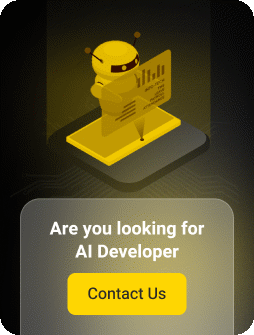Explore the concept of Agentic AI, uncovering its definition, key features, and why it’s a pivotal development in artificial intelligence, shaping the way machines interact and make decisions independently.
Agentic AI is the next frontier of artificial intelligence innovation.
Unlike traditional AI systems, which respond to individual queries, Agentic AI uses advanced reasoning and iterative planning to tackle complex, multi-step problems independently.
But what exactly is Agentic AI? What makes it different from the AI systems we use today? What frameworks enable its advanced capabilities, and how could it shape the future of industries and innovation?
Let’s find out. In this article, we’ll break down the basics of Agentic AI, explore its unique features, and highlight its potential impact on technology and society.
What Is Agentic AI?
Agentic AI is a new development in artificial intelligence that goes beyond simple interactions.
Unlike traditional AI, which responds to single tasks or queries, it uses advanced reasoning and iterative planning to solve multi-step problems independently.
These systems gather and process large amounts of data from various sources. They can analyze challenges, create strategies, and perform tasks without constant input.
Examples include improving supply chains, identifying cybersecurity risks, and assisting with medical processes.
Agentic AI stands out because of its ability to think through problems in a structured way. It is seen as a transformative step in AI, bringing the potential to improve efficiency and decision-making across many industries.
The Building Blocks of Agentic AI
Agentic AI by definition combines learning, adaptability, and teamwork to solve complex problems in efficient and innovative ways. Its design allows it to grow smarter, adjust to changing conditions, and work collaboratively to achieve results.
The foundation of Agentic AI is its ability to improve through self-assessment. It processes vast amounts of data to review its actions, identify areas for improvement, and refine its methods over time, making it reliable and effective even in challenging scenarios.
Another strength lies in its ability to use external tools. When faced with new or complex tasks, it accesses real-time data or performs specialized functions, ensuring it stays relevant and resourceful in dynamic environments.
But it's the structured approach to problem-solving that sets it apart. Agentic AI breaks down tasks into smaller steps, prioritizes actions, and executes them in the right order. This strategic planning ensures tasks are handled with precision and efficiency.
And finally, collaboration is a key feature in Agentic AI, which means it can coordinate multiple agents, each focused on specific parts of a larger task. Together, they work seamlessly to achieve goals that would be impossible for a single system.
These interconnected abilities make Agentic AI a powerful system, capable of adapting to complex challenges and shaping the future of intelligent solutions.
What Makes Agentic AI Different from Traditional Generative AI and AI Systems?
Agentic AI is different from generative AI and traditional AI systems because of its focus on actions and decision-making.
Generative ai services is excellent at creating content like text, images, music, or code, but it relies on human input to define its goals and provide direction. It helps with tasks like brainstorming ideas or producing creative outputs but does not work independently.
Agentic AI takes things further by acting and making decisions on its own. It can analyze situations, come up with strategies, and carry out tasks to achieve specific goals without constant human involvement. This independence allows it to adapt to changes and learn from experiences, making it more flexible and capable.
While traditional AI systems are designed for specific tasks and follow set rules, Agentic AI can handle more complex and dynamic challenges. It adjusts to new information and environments, giving it the ability to perform tasks that require both intelligence and autonomy.
How Does Agentic AI Work?
Agentic AI operates through a continuous cycle that allows it to perceive, reason, act, and learn, enabling it to tackle complex challenges independently.
Perceiving Data
The process starts with data collection and analysis. Agentic AI gathers information from various sources such as sensors, databases, and digital systems. It identifies patterns, recognizes objects, and extracts relevant details essential for understanding the problem at hand.
Reasoning and Planning
After processing the data, the AI analyzes it and develops a strategy. A reasoning engine collaborates with specialized models tailored to specific tasks, such as image processing or recommendations. These systems work together to generate actionable solutions and create a clear plan for execution.
Executing Actions
Once a plan is ready, Agentic AI performs the necessary tasks using connected tools and software. These actions are carried out according to defined rules to ensure reliability and accuracy. For instance, AI in customer service, it might process smaller claims autonomously while forwarding complex cases for human review.
Learning and Improving
Agentic AI learns from every action it performs. The data from its activities is fed back into the system to refine its models, enabling continuous improvement. Over time, this feedback loop enhances its ability to solve similar problems more effectively and adapt to new challenges.
Each of these steps works together to make Agentic AI capable of solving complex, multi-step problems with minimal human intervention.
Source: Nvidia
What Frameworks Enable Its Advanced Capabilities?
Agentic AI is powered by cutting-edge frameworks that allow it to think, act, and adapt with impressive autonomy:
Reinforcement Learning
RL (Reinforcement Learning) is a framework that enables Agentic AI to learn from its actions by leveraging feedback loops. Through trial and error, it refines its strategies and improves performance over time, making it highly adaptable and effective in dynamic environments.
Large Language Models (LLMs)
LLM provides the foundation for processing natural language, allowing Agentic AI to interpret complex instructions and communicate effectively. This capability ensures seamless interaction between the system, its users, and external systems.
Retrieval-Augmented Generation (RAG)
Retrieval-Augmented Generation (RAG) equips Agentic AI with the ability to retrieve relevant data from external sources in real time. By integrating this information into its decision-making, the system remains resourceful and accurate, even when faced with evolving challenges.
Multi-Agent Systems
Multi-agent frameworks enable Agentic AI to distribute tasks among specialized agents. This collaborative approach ensures efficiency and scalability, allowing the system to handle complex, multi-faceted projects with precision.
These Agentic AI frameworks collectively provide it with the adaptability, intelligence, and collaborative power to excel in environments where traditional AI systems fall short.
Future Possibilities for Agentic AI
Agentic AI is still in its early stages, but its potential to shape the future is vast. Here’s how Agentic AI could possible be used in the years to come:
1. Personalized Healthcare
Imagine a future where AI systems can analyze a patient’s history, lifestyle, and genetic data to provide tailored treatment plans. Agentic AI could assist doctors by monitoring patients remotely, predicting potential health issues, and suggesting preventative measures. This might revolutionize areas like elder care, chronic disease management, and personalized medicine.
2. Space Exploration
As humanity looks to the stars, Agentic AI could become the ultimate co-pilot. It could help astronauts make decisions in real time, manage spacecraft systems, and adapt to unforeseen challenges during long missions. On uncrewed missions, it could explore planets and analyze data without waiting for instructions from Earth.
3. Advanced Climate Solutions
Agentic AI has the potential to address one of humanity’s greatest challenges: climate change. With its ability to analyze vast amounts of data, it can process environmental information, create detailed models to predict natural disasters, optimize renewable energy production, and develop strategies for sustainable agriculture. Due to its high level of accuracy, Agentic AI can assist humans in decision-making, leading to faster and more effective climate interventions.
4. Creative Collaboration
In the future, artists and innovators could collaborate with Agentic AI to push creative boundaries. From composing symphonies to designing fashion collections or creating immersive virtual worlds, it could open up new avenues for creativity that blend human intuition with machine precision.
5. Intelligent Cities
Smart cities of the future might rely on Agentic AI to manage their infrastructure. It could monitor traffic flows, optimize public transportation routes, and ensure energy is distributed efficiently. This kind of autonomous management could make cities greener, safer, and more efficient for their residents.
6. Education Transformation
Education could be completely redefined by Agentic AI, making learning more accessible and engaging. It might develop personalized curricula for every student, provide real-time feedback, and even simulate virtual tutors to explain complex concepts. This could bridge educational gaps and bring high-quality learning to underserved areas.
7. Autonomous Business Operations
Businesses of the future could operate with minimal human intervention. Agentic AI might independently take over certain jobs, manage supply chains, or oversee large-scale manufacturing processes. Such automation could drive efficiency and innovation, particularly in industries like logistics and retail.
8. Exploration of the Ocean Depths
The deep sea remains one of the least understood parts of our planet. Agentic AI could autonomously navigate and study these uncharted territories, gathering data on marine ecosystems, discovering new species, and providing insights into the health of our oceans.
While its current applications are just emerging, its potential to enhance and innovate across industries is undeniably exciting.
Why Is Agentic AI Advancing So Quickly?
Agentic AI is evolving rapidly because of new ways AI learns and the growing need for smarter systems.
Instead of relying solely on predefined instructions, advancements in autonomous learning, such as reinforcement learning, have enabled AI to teach itself through trial and error. What does this mean? It means AI can figure out how to solve problems on its own, which is why it’s being used in tasks like driving autonomous cars or improving factory robots.
Another big reason for its growth is the power of advanced language models. These systems can understand and generate human-like communication, making it easier for AI to analyze information, make decisions, and explain its actions.
What makes Agentic AI so exciting is how it combines these skills. It doesn’t just solve problems, it adapts and learns, becoming better over time. This flexibility is why it’s developing so quickly and why it’s expected to bring even more innovations in the future.
Final Thoughts
Agentic AI is more than an advancement in artificial intelligence. It represents a future where machines can think, plan, and act with a level of independence that was previously unimaginable.
Unlike traditional systems that follow predefined instructions, Agentic AI is capable of reasoning, strategizing, and solving complex challenges on its own.
What sets Agentic AI apart is its ability to innovate, not just respond. It is a dynamic system that learns, adapts, and collaborates, making it a driving force for progress in industries such as healthcare, cybersecurity, and beyond.
As a major breakthrough in generative AI, it is shaping systems that contribute meaningfully to the world rather than simply supporting it.
The rise of Agentic AI marks the beginning of a new era in technology. By blending human ingenuity with intelligent systems, it is creating a foundation for advancements that will redefine the way we live and work.
The future is unfolding, and Agentic AI is at its core.













